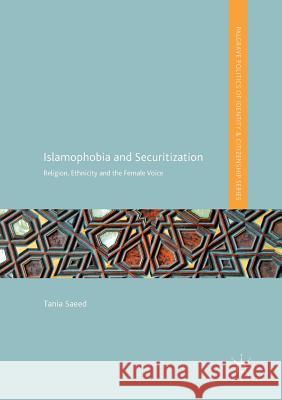Islamophobia and Securitization: Religion, Ethnicity and the Female Voice » książka
topmenu
Islamophobia and Securitization: Religion, Ethnicity and the Female Voice
ISBN-13: 9783319813462 / Angielski / Miękka / 2018 / 235 str.
Kategorie:
Kategorie BISAC:
Wydawca:
Palgrave MacMillan
Seria wydawnicza:
Język:
Angielski
ISBN-13:
9783319813462
Rok wydania:
2018
Wydanie:
Softcover Repri
Ilość stron:
235
Waga:
0.30 kg
Wymiary:
21.01 x 14.81 x 1.35
Oprawa:
Miękka
Wolumenów:
01
Dodatkowe informacje:
Wydanie ilustrowane











